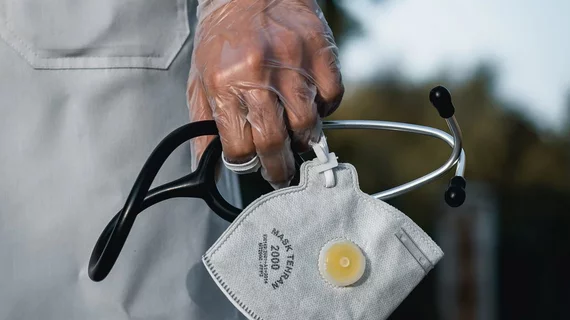Radiologists should watch for these 3 pulmonary findings linked to increased COVID mortality
In an effort to better understand mortality predictors of COVID-19, a new meta-analysis published this week in Academic Radiology highlights extra-pulmonary findings indicative of disease severity and mortality among patients in hospital settings.
Twenty-two studies, which included 7,859 patients, were compiled to examine four specific extra-pulmonary CT findings: pleural effusion, pericardial effusion, mediastinal lymphadenopathy and coronary calcifications.
Early in the pandemic doctors found that age (over 60), men and certain preexisting conditions, especially cardiovascular comorbidities, all increased likelihood of severe illness and mortality. Since then, researchers have been able to study thousands of exams and cases.
This study looked beyond the common pulmonary consolidations that were initially noted on CT scans and put the extra-pulmonary findings under a microscope.
Of those results, three findings stood out as accurate indicators of in-hospital mortality. Pleural effusion, mediastinal lymphadenopathy and coronary calcifications were all linked to severe disease and increased mortality. Pericardial effusion, conversely, was not a significant indicator.
For reference, most of the CT scans researchers evaluated were performed as a baseline study when patients arrived at the hospital. Of those, 5% of patients’ scans showed pleural effusion in the initial stages of the disease, while it was noted in 16% of patients in the late stages. Likewise, 4% of patients experienced mediastinal lymphadenopathy in preliminary stages, versus 15% in the later stages.
These CT findings further confirm that early diagnosis and treatment significantly impact the prognosis for those most at risk of severe COVID. The study states that these findings should be “sufficiently reported” by radiologists and considered highly pertinent when considering patient treatment. Noting these findings on CT scans could result in more prompt treatment and ICU admission, which could improve overall prognosis for those with severe infections.
You can read the detailed study here.

